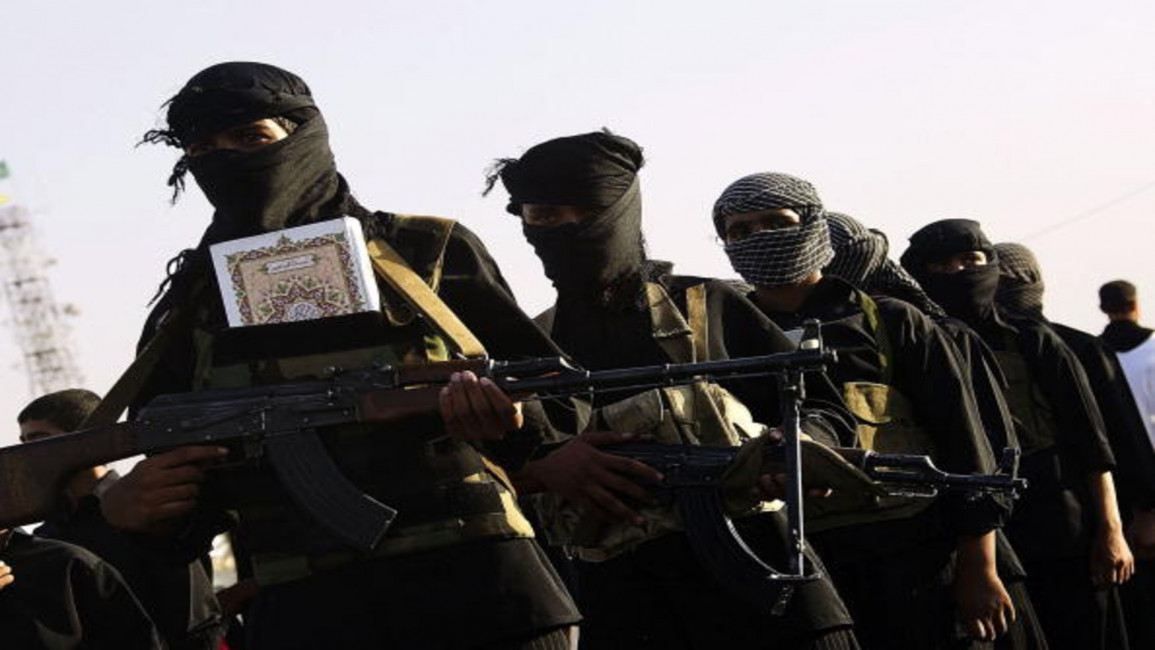Yazidi leader blasts pro-Iran, Kurdish militia in Sinjar for prompting new wave of displacement
The head of Iraq's Yazidi community has accused Iran-backed militia groups and the Kurdistan Worker’s Party (PKK) of prompting a new wave of forced displacement of the minority from Sinjar, The New Arab’s Arabic language sister-site report.
The flashpoint region has been gripped by tensions as various militia groups have mobilised to defend their interests in Sinjar, amid Turkey's threat of an offensive as part of its long-term campaign against the PKK, which Ankara has designated as a terrorist group.
Jahour Ali, the deputy emir of Iraq's Yazidi community, told The New Arab that the spectre of pro-Iran and Kurdish militias has prompted fears among Yazidi returnees that the ruined town, under the control of the Islamic State group between 2014 and 2015, could once again descend into chaos.
He attacked the Iraqi government for failing to uphold an agreement to eject all armed non-state groups from the town. His rebuke was echoed by Mahma Khalil, the mayor of Sinjar, who also spoke to The New Arab.
The mayor said that the presence of fighters loyal to the PKK and Iraq's Popular Mobilisation Forces (PMU) – a network of powerful Iran-backed proxies that are integrated into the Iraqi state – "invited" the collapse of the Sinjar agreement and impacted any path to stability.
A top Iraqi military official in Nineveh province, where Sinjar is located, has admitted the rivalries, saying Turkey, armed groups and rival Kurds were all trying to "secure their interests via Sinjar".
Prime Minister Mustafa al-Kadhemi has reportedly rushed to defuse the tensions, with a top official in his office telling AFP there was ongoing contact with Turkey to try to hold off an incursion.
Twitter Post
|
Read more: Once ravaged by IS, Iraq's Sinjar caught in new tug-of-war
Sinjar was retaken from IS in 2015 by fighters from the autonomous Kurdistan region's Peshmerga and from Syrian Kurdish units, backed by the US-led coalition. Iran-backed units from within the PMU took surrounding territory.
During there rule of Sinjar, IS pursued a brutal, months-long campaign of massacres, enslavement and rape against Yazidis in what the UN has said could amount to genocide.
Sinjar is wedged between Turkey to the north and Syria to the west, making it a highly strategic zone long coveted by both the central government in Baghdad and Kurdistan’s Regional Government (KRG) the north, who claim to control it.
The KRG is irked by the presence of the PKK, a rival faction operating in north Iraq for decades and whose Syrian branch helped fight IS in Sinjar.
The PKK's role infuriates Ankara, which calls it a "terrorist" group for its decades-long insurgency in Turkey and has crossed into Iraq to bomb the PKK.
In January, Ankara upped the ante, bombing a mountainous region close to Sinjar and hinting it could invade.
"We may come there overnight, all of a sudden," warned President Recep Tayyip Erdogan.
The tensions have terrified the handful Yazidis returnees, who must now contend with possibility of displacement once again.
Follow us on Facebook, Twitter and Instagram to stay connected


![President Pezeshkian has denounced Israel's attacks on Lebanon [Getty]](/sites/default/files/styles/image_684x385/public/2173482924.jpeg?h=a5f2f23a&itok=q3evVtko)



 Follow the Middle East's top stories in English at The New Arab on Google News
Follow the Middle East's top stories in English at The New Arab on Google News


